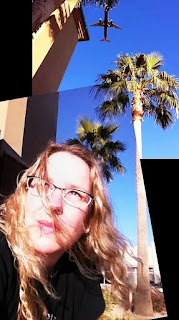I recently read a book that had a lot of potential. The overall message of the book was very important and I think it’s something that could really help a lot of people. The issue was that it got lost in the endless internal ramblings of the main character’s voice. I think only about 10% of the book was dialogue. And most of that 10% wasn’t well executed.
A few ‘conversations’ were completed in one paragraph. As in—I said, “Hey, how’s it going?” And she replied, “Things are good.” So I said, “Great!”
Another example is a chapter that ended with the main character arriving at someone’s house, after having had a very emotionally difficult day. Instead of picking up that moment in the next chapter, we are told what happened when the main character tells another friend about the conversation. . . Um, why?
Sigh.
I’m one of those who has a very hard time dropping a book, so the result of this poor execution was that I just started skipping large chunks. The author effectively lost me, and I’m not sure I’m willing to give another book of hers a try.
Dialogue is not a requirement for every book, but it is when writing a fiction novel. It keeps the story moving, and it’s what helps you ‘show’ rather than ‘tell’. Below is an example. I’ve crafted two narrations—one without any active dialogue and one with.
Example 1:
Suzie has been my best friend for nearly a decade. Our dessert had just arrived (neither of us likes to admit defeat against temptation, so we decided to share) when she asked me about the book I read. We tend to like the same kinds of books, so we always quiz each other about our most recent reads. If one of us didn’t like it, there’s a good chance the other won’t like it either. The problem was I wasn’t sure how to answer her. The book had a very good premise, and the moral of the story was so important. The characters were diverse, which was a breath of fresh air. I knew she struggled with the same issue as the main character, so on one hand I definitely thought she should read it. But on the other hand, if she got frustrated with the execution and stopped reading, she might miss the message altogether.
I must have taken too long thinking about my answer because she asked me again. I told her, “It was good.” Her reply was, “That’s not very convincing.” And so I told her about my concerns.
Example 2:
The waiter placed the dessert in the center of the table and disappeared after producing two fresh spoons. I snatched one up and dipped it into the creamy concoction without hesitation.
After a few bites, Suzie wiped her mouth and leaned forward. “Hey, how was that book you just finished?”
My mouth was full so I raised my hand and made the ‘eh’ motion.
“Darn. It sounded so good. What was wrong with it?”
I swallowed and took a sip of my wine before answering. “Well, it had lots of humor and diverse characters. And the overall message was wonderful. As your best friend, I know it’s something you’d connect with. But the execution was poor. It’s only about 300 pages but it felt like I was slogging through an 800-page psychology textbook most of the time.”
Suzie sat back in disappointment. “Now I’m even more curious about the book for the message, but I don’t really have the energy to force myself through a slow-paced book.”
“How about I give you the highlights?”
Suzie snapped her fingers and pointed at me before dipping her spoon back into the bowl. “Yes, perfect.”
I’d like to note that both examples above have the exact same word count and present the same information. Despite the same number of words, I’m hoping you found Example 2 much easier to read. The story flowed and there was interaction between the characters. I know I’d rather read novels that fall into the second example over the first any day.
Now, back up in my opening paragraph, I mentioned that the dialogue that was included in this particular novel was poorly executed. I could make this post twice as long by giving you advice on how to write excellent dialogue (since my critique group tells me I’m a ‘master of dialogue’ I think I’d have a few legit tips), but there are already lots of great articles on the subject. Below are just a few I found when I did a search for this post.
Now go forth and make your characters effectively communicate!
~Carrie












